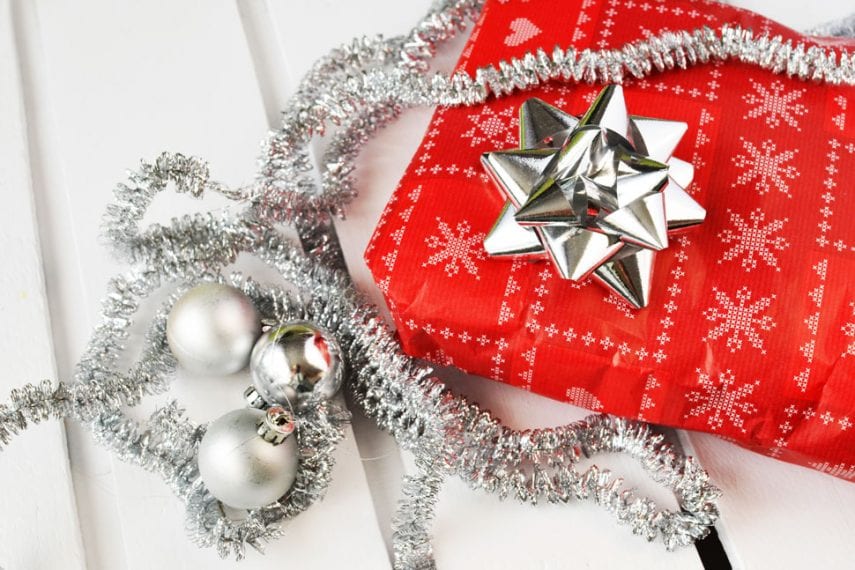‘Tis the Season: Supporting A Loved One in Alcohol Addiction Recovery Through the Holidays

For the past 7 years, my best friend and I have spent New Year’s Eve together, laughing, dancing, and drinking on the final night of the holiday season, and on into the first morning of the new year. This year will be different. This year, she is in alcohol addiction recovery and instead of our champagne, we will be drinking sparkling apple juice. Instead of sharing wine while we get dressed to go out, we will have coffees to help us stay awake until midnight. And instead of starting the new year further down the spiral of addiction, she will be welcoming 2016 with her sobriety intact and a deepening commitment to recovery.
The holiday season can be a profoundly challenging time for people in alcohol addiction recovery. Suddenly, alcohol is everywhere, from work parties to Christmas dinner to New Year’s Eve celebrations, and even people who don’t normally indulge make an exception to have a spiked eggnog in front of the fireplace on Christmas Eve or ring in the new year with a celebratory glass of champagne. Research shows that drinking increases 27% during the holiday season and the increased visibility, social expectation, and accessibility of alcohol consumption can be profoundly triggering for people struggling to maintain sobriety. When alcohol temptation is added to the stress of family gatherings, social events, and financial obligations, the holiday season can present a veritable minefield of relapse possibilities. But, if handled correctly, this time of year can also present opportunities for tremendous growth, reconnection with family and friends, and reaffirmation of the joy of life free from addiction. By considering how to help your loved one in recovery, you can contribute to a positive holiday season that enriches their recovery experience and fortifies your relationship at a vulnerable time.
Extend the Invitation, Withhold the Expectation
For many people in alcohol addiction recovery, particularly in early stages, attending holiday events with family or friends can be an overwhelming experience that compromises the recovery process. Ask your loved one if they feel comfortable participating, and tell them that you will support whatever decisions they make; if holiday parties and family events are not safe places for their sobriety, it is perfectly fine to avoid them. It is always okay to prioritize recovery.
Integrated Treatment for Alcoholism & Co‑Occurring Disorders
Ask Your Loved One What They Need
If your recovering friend or family member does want to spend the holidays with you, talk to them about what they need. Their vision of how to get through the holiday season with their sobriety intact may be drastically different than your own, and having a heart-to-heart conversation about their needs allows you to support them in a meaningful and relevant way. Discussing fears, triggers, and coping mechanisms can allow you to create a plan for how to structure holiday events and better understand the challenges your loved one is facing. For example, some people in alcohol addiction recovery will only feel safe in an alcohol-free environment, while others feel dry events call unwanted attention to their struggle with addiction and prefer that alcohol continues to be served.
Stock Up On Non-Alcoholic Beverages
Drinking can be a big part of holiday festivities and you often don’t notice just how big a part it truly is until you can no longer participate. Because holiday events are often structured around social drinking, non-alcoholic beverages may be an afterthought, leaving non-drinkers with limited options. Ask your family member what types of beverages they would like to have and what they want to avoid so you can be sure to sidestep potential triggers. For example, some recovering alcoholics enjoy non-alcoholic sparking cider as a substitute for champagne on New Year’s Eve, but for others, the similarities only serve to increase cravings and produce emotional distress.
Invite A Sober Friend
If you are hosting events at which alcohol will be served, asking your loved one if they want to bring along a sober friend can be critical to resisting temptation and avoiding isolation. The camaraderie and mutual support between people in recovery can strengthen your loved one’s resolve and ensure that they have an ally on their side.
Give Them Time To Themselves
Offer your loved one the time and space to remove themselves from the festivities if it gets to be too much. For many people in recovery, taking time out to go for a walk, spend time quietly meditating, or attending a meeting is vital to coping with stress, triggers, and cravings. Make sure they know where they can go if they need to get away and that you respect their need to do so.
Manage Your Expectations
Many of us have idealized visions of the holiday season; you see yourself surrounded by family and friends in a beautifully decorated house, opening thoughtfully chosen gifts, sharing wonderfully prepared meals, and enjoying each other’s company in blissful harmony that reflects the spirit of love, generosity, and kindness. Or at least you really, really want everyone to be happy and get along. This may be particularly true if this will be the first holiday season your loved one has spent sober in some time, as it’s common to want to make up for lost time by creating a wonderful family experience. Such expectations would be difficult for anyone to live up to, let alone someone who is in the early stages of alcohol addiction recovery and is likely to be experiencing difficult emotions as a normal reaction to a major life change. Having realistic expectations of your loved one, yourself, and the holidays as a whole can avoid setting you and your loved one up for disappointment and protect against unnecessary conflict.
Don’t Ignore Relapse
If relapse does happen during the holidays, friends and family often blame themselves: if only I hadn’t had that party, if only I hadn’t had a drink, if only we hadn’t had that fight things would be different. The truth is that while you can take measures to encourage and support sobriety, you are not responsible for your loved one’s alcohol addiction, and you did not cause the relapse. However, you can encourage them to connect with professional alcohol addiction recovery experts to assess how to best address the return to drinking and create a strategy for regaining sobriety. Depending on the circumstances of the relapse, residential addiction treatment or an intensive outpatient treatment program may present the best option for successfully freeing your loved one from addiction for good. Through personalized, compassionate care drawing on the most effective, evidence-based therapies and 12-step peer support groups, they can learn to identify and remove the obstacles to healing and move towards a more stable, fulfilling, and joyful life. The earlier the need for treatment is recognized, the sooner the journey toward lasting recovery and renewed commitment to wellness can begin.
Alta Mira offers comprehensive treatment for people struggling with alcohol addiction and co-occurring mental health disorders and process addictions. Contact us to learn more about our innovative program and how we can help you or your loved one on the path to sustainable healing.






